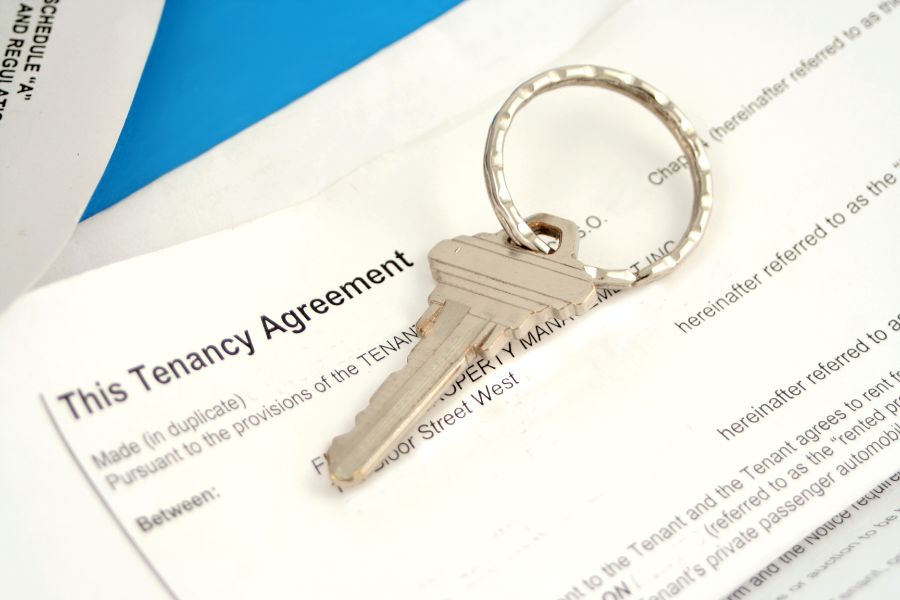Introduction
Renting a home in Wellington can feel overwhelming, especially if you’re unfamiliar with the process. At Taylor Property Plus, we’re here to simplify things for tenants and ensure you understand your rights and responsibilities under New Zealand’s Residential Tenancies Act.
Whilst it might sometimes feel like you are on your own when you are searching for a rental property in Wellington, or indeed, throughout New Zealand, there are a lot of resources out there to help you and ensure that you are aware of your rights and responsibilities. At Property Plus, we work closely with both tenants and landlords to ensure both parties are happy with their agreement as we aim to foster a harmonious and long-term relationship that benefits both parties.
This guide will help you navigate the rental process with confidence and clarity.
Key Takeaways
- Learn your rights as a tenant and what your landlord’s responsibilities are.
- Understand tenancy types like fixed-term agreements.
- Know how property inspections, rent increases, and tenancy termination work.
- Communicate effectively with your landlord or property manager.
- Use resources available to tenants for additional support.
Table of Contents
Tenant Rights in New Zealand
As a tenant, your rights are protected by law to ensure you have a safe and comfortable home. Here’s what you’re entitled to:
- Quiet Enjoyment: Your landlord cannot interfere with your day-to-day life at the property.
- Healthy Homes Standards: The property must meet standards for heating, insulation, and ventilation to keep it safe and healthy.
- Repairs and Maintenance: Your landlord must fix any issues that make the property unsafe or unliveable.
- Bond Handling: If you pay a bond, it must be lodged with Tenancy Services.
- Fair Rent Adjustments: Rent increases can’t happen more than once every 12 months and require 60 days’ written notice.
- Proper Notice for Inspections: Landlords must give at least 48 hours’ notice before inspecting the property.
- Termination Rules: Clear processes are in place for ending tenancies, including 90 days’ notice for periodic tenancies in most cases.
Understanding these rights helps you advocate for yourself and ensures your tenancy runs smoothly.
Your Responsibilities as a Tenant
While you have rights, you also have responsibilities. Meeting these helps maintain a positive relationship with your landlord:
- Pay Rent on Time: This is your primary obligation as a tenant.
- Keep the Property Tidy: Maintain cleanliness and avoid causing damage.
- Report Issues Promptly: Notify your landlord or property manager about damage or repairs needed.
- Follow the Tenancy Agreement: Use the property only for residential purposes and don’t exceed the agreed number of occupants.
- Seek Permission for Changes: You need your landlord’s agreement before making any alterations to the property.
- Respect Neighbours: Avoid excessive noise and respect others’ rights to peace and quiet.
By fulfilling these responsibilities, you’re contributing to a positive tenancy experience for everyone involved.
Fixed-Term vs. Periodic Tenancies
When signing a tenancy agreement, it’s important to understand the type of tenancy:
- Fixed-Term Tenancy: This lasts for a set period, such as 12 months. You can’t end it early without your landlord’s agreement unless there are exceptional circumstances.
- Periodic Tenancy: This continues until either you or the landlord gives notice. Tenants must give at least 28 days’ notice, while landlords generally need to give 90 days’ notice.
Make sure you know which type of tenancy you’re entering into and what it means for you.
Property Inspections and Rent Increases
- Inspections: Landlords are allowed to inspect the property, but they must give you at least 48 hours’ notice. Inspections are typically done every 3 to 6 months to ensure the property is well-maintained.
- Rent Increases: Your landlord can’t increase rent more than once a year, and they must provide 60 days’ written notice. The increase should be fair and in line with market rates.
Being aware of these rules helps you prepare and ensures landlords follow legal requirements.
Health and Safety: A Shared Responsibility
Both landlords and tenants have roles to play in keeping the property safe:
Landlord Responsibilities:
- Ensure the property complies with Healthy Homes Standards.
- Provide working smoke alarms.
- Address health and safety issues promptly.
Tenant Responsibilities:
- Replace smoke alarm batteries if needed.
- Report safety concerns immediately.
- By working together, landlords and tenants can create a safe living environment.
Health and safety is an important element of the tenant/landlord relationship and there must be trust from both sides as you both work towards ensuring that the property your are living in meets the required health and safety standards as set by New Zealand law.
Communication: The Key to a Good Tenancy
Effective communication with your landlord or property manager can prevent many common problems. Here’s how to keep communication smooth:
- Be Proactive: Report maintenance issues as soon as they arise.
- Keep Records: Save emails and take notes of conversations about important matters.
- Respond Promptly: Reply to messages from your landlord or property manager in a timely manner.
- Use the Right Channels: For non-urgent issues, email works well. For emergencies, call your landlord directly.
- Stay Respectful: Being courteous helps build a positive relationship.
Good communication ensures that problems are resolved quickly and fosters trust between tenants and landlords.
Resources for Tenants
If you need help or more information, these resources can assist you:
- Tenancy Services: The official government website offers detailed guides on tenant rights and responsibilities.
- Tenancy Tribunal: Handles disputes between landlords and tenants. Use this service if issues can’t be resolved directly.
- Community Law: Provides free legal advice on tenancy matters.
- Wellington City Council: Offers housing-related support and information.
- Renters United: An advocacy group that supports tenant rights across New Zealand.
These resources can provide valuable support throughout your tenancy.
Conclusion
Renting in Wellington doesn’t have to be stressful. By knowing your rights and responsibilities, keeping up with rent and property care, and communicating effectively, you can enjoy a smooth and successful tenancy.
At Taylor Property Plus, we’re committed to supporting tenants and fostering positive relationships with landlords. If you have any questions about renting or need assistance, contact us today. Together, we can make your renting experience in Wellington a great one.
Frequently Asked Questions
What are my key rights as a tenant in Wellington under New Zealand law?
As a tenant, you’re entitled to quiet enjoyment of your home, a property that meets Healthy Homes Standards, timely repairs for unsafe or unliveable conditions, proper bond handling, fair rent increases (no more than once every 12 months with 60 days’ notice), and adequate notice for inspections or tenancy termination.
How can I tell if I’m on a fixed-term or periodic tenancy, and why does it matter?
Your tenancy agreement will specify the type. A fixed-term tenancy runs for a set period (e.g., 12 months) and can’t be ended early without agreement or exceptional circumstances. A periodic tenancy continues until notice is given – tenants must give 28 days, and landlords usually must give 90 days. Knowing this helps you plan moves and avoid breaching your agreement.
What should I do if I have a maintenance or safety concern in my rental property?
Report it to your landlord or property manager as soon as possible, preferably in writing. For urgent safety issues, call immediately. Keep records of your communication, and remember that landlords are responsible for meeting Healthy Homes Standards, while you’re responsible for smaller upkeep like replacing smoke alarm batteries.



